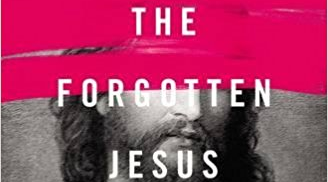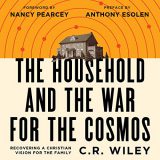The Greatest Wish That Is Never Made
What does it mean to be content?

Perhaps a better question to ask is what would it take for someone to ‘be content’? It’s easy to say that given more money or belongings, you would be truly happy, but that wouldn’t be contentment.
To be content means to be happy or satisfied with your current situation. A rich person, with a great abundance, can lack contentment, in the same way a poor person, living from day to day can be upset with what he doesn’t have.
Agur, the author of Proverbs 30 discussed this in a wise way. He starts by saying, “Two things have I required of thee; deny me them not before I die.” Or in other words in verse seven, he explains that this is what he truly wants.
What he proceeds to ask for is quite interesting.
He doesn’t ask for money or a greater increase in his property.
No, instead he asks, “Remove far from me vanity and lies: give me neither poverty nor riches; feed me with food convenient for me.” First, Agur starts by saying that he doesn’t want to be deceitful.
‘Remove far from me vanity and lies’, he says, inquiring that instead of being rich and proud of what he owns, he’ll instead be humble and truthful. Then, he adds his other request which is to be neither poor nor rich.
Now why would he say that?
Wouldn’t it be better to be rich so you could praise the Lord and thank Him for all of His great blessings? Or on the other hand, wouldn’t it be more beneficial to be poor so God could make an example of Agur by providing for him?
Verse nine gives us an explanation, “Lest I be full, and deny thee, and say, ‘Who is the Lord?’ Or lest I be poor, and steal, and take the name of my God in vain.” So, Agur describes what would happen if he was rich or the opposite.
He says that if he was ‘full’ and had everything he wanted, he would forget the Lord. After all, if Agur had security in his belongings, then it would be easy for him to assume that he was self-sufficient and that he didn’t need God’s help.
On the flip side, Agur was concerned that if he didn’t have enough, to the point where he didn’t even have food, then he would be tempted to steal for a meager meal. In that case, by stealing, Agur would cast a shadow on the Lord and what He stands for. Agur was aware that stealing, even for necessity would look bad, not on him, but on the Lord, whom he claimed to follow.
So, what can we learn from Agur’s example? Well, for one thing, we should realize that it is both the Lord who gives us good things and bad. That said, we need to remember to thank Him for both the good and the bad.
Like Job, after losing everything said, “Shall we indeed accept good from God, and shall we not accept adversity?”












